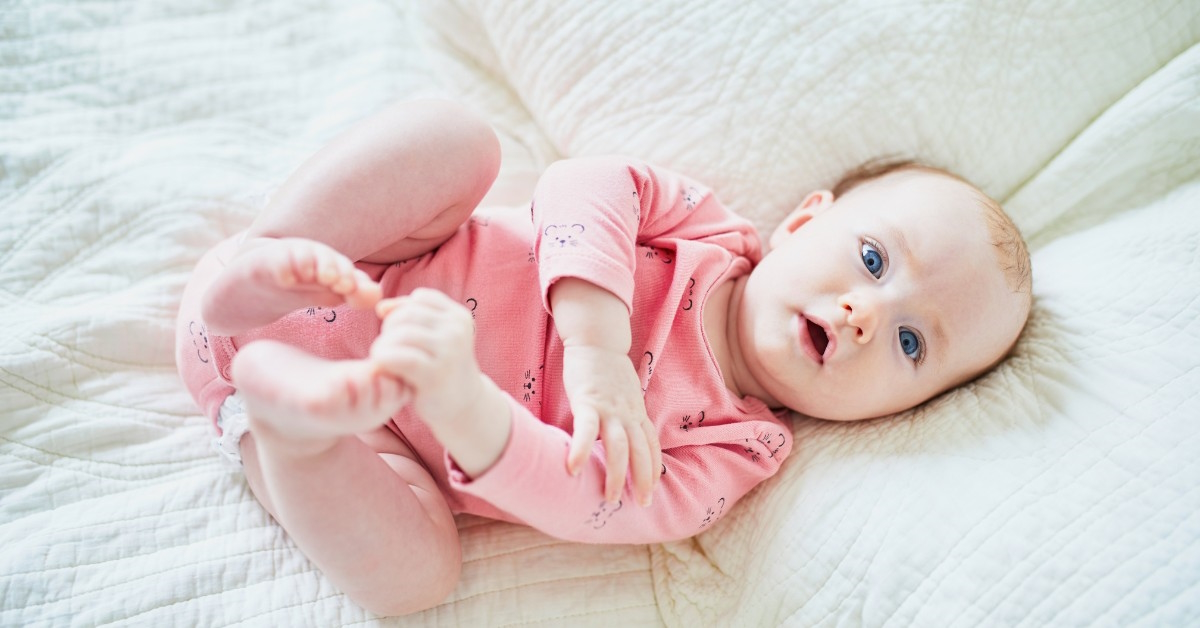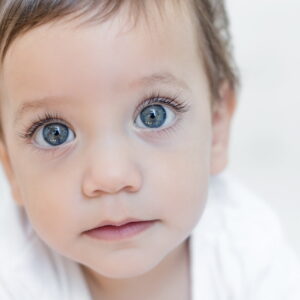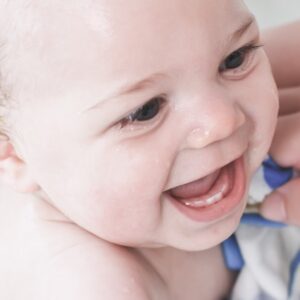What if a 4-month-old baby is losing hair..? Is this normal or a sign of illness?
Let’s go through possible reasons for hair loss at this age.
Mom’s Question:
My daughter is 4.5 months old. Today her hair has been falling out very quickly, and over the course of a few hours, it was noticeably thinner.
She also now has completely bald patches behind both of her ears, and it looks really patchy on the top of her head too. (She looks like she has been going through chemo treatments)…
She was a preemie, so I am worried about every little thing that doesn’t seem ‘normal’ to me.
Is such rapid hair loss a normal thing? Or should I call the pediatrician about it?
Cara
Hair Loss Normal Or Not For 4-Month-Old Baby
Newborn Hair Loss
Newborn hair loss is perfectly normal and nothing to worry about. Babies often lose their hair during the first six months. This kind of normal baby hair loss is called telogen effluvium and is due to the two different stages that hair can be in. Human hair has a growth stage and a resting stage. The resting stage usually comes every three years or so and lasts for three months, but sharp hormonal changes (such as being born) actually trigger the resting stage, and hence, the baby’s hair falls off and stays off for a few months. So, the hormonal change triggered by birth explains general hair loss in babies.
Normal Bald Patches
When it comes to bald patches (which most babies also have), they are usually due to actually tearing off the hair. Baby hair is very soft, and lying down and turning the head will tear off the hair on most babies. If you look around, you are likely to notice many young babies with quite funny hairstyles – looking like small monks.
Illness-related Hair Loss in Babies
There are other conditions that cause hair loss, but the more serious ones are very uncommon in children under 12 months old:
- Patchy bald spots with red, flaky scaling (and sometimes black dots where the hair has broken off) may mean that your baby has a contagious fungal infection called tinea capitis or ringworm.
- If your baby has smooth, round, totally bald areas, she may have alopecia areata, a condition in which the immune system attacks the hair follicles, drastically slowing hair growth. This type of hair loss usually appears in isolated patches, although it can affect all of the hair on the body. However, this is almost never seen in babies younger than six months of age.
- Some medical conditions, such as hypothyroidism (a thyroid disorder) or hypopituitarism (an underactive pituitary gland) can cause hair loss all over your child’s head.
- Some vitamin and mineral deficiencies can also cause hair loss, but again, at the age of 4 months, such problems are highly unlikely to have developed.
You can read more about hair growth and hair loss in babies here
What to Do When Baby is Losing Hair
For the normal baby bald spots due to tearing off the hair, try alternating the way your baby sleeps during naps and at night. (Just don’t put your baby to sleep belly down due to the risk of sudden infant death syndrome.) If you usually put her to sleep with her head at one end of the crib, try putting her down with her head at the other end every other night. Your baby will naturally turn her head to the side to look out of the crib, so she’ll be resting on a different part of his head.
Belly time while awake or time in the baby carrier is excellent, too, to reduce hair loss at the back of the head.
I hope this helps,
Paula
More Baby Hair Issues
- Hair Loss In 9 Month Old
- Baby Doesn’t Have Enough Hair
- Baby Has Bald Spots
- Baby Losing Hair Due To Cradle Cap
Add your comments below.

Paula Dennholt founded Easy Baby Life in 2006 and has been a passionate parenting and pregnancy writer since then. Her parenting approach and writing are based on studies in cognitive-behavioral models and therapy for children and her experience as a mother and stepmother. Life as a parent has convinced her of how crucial it is to put relationships before rules. She strongly believes in positive parenting and a science-based approach.
Paula cooperates with a team of pediatricians who assist in reviewing and writing articles.







